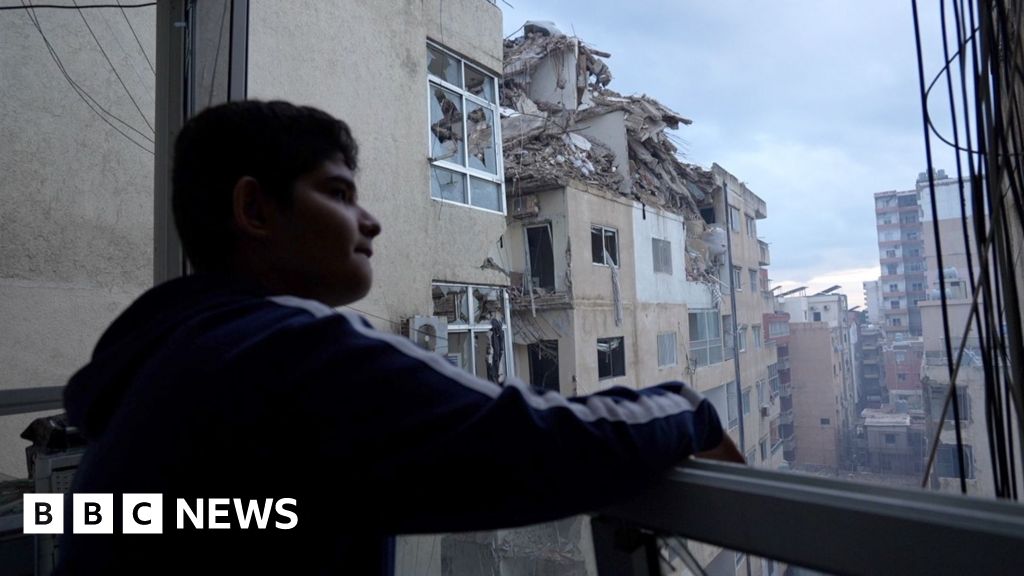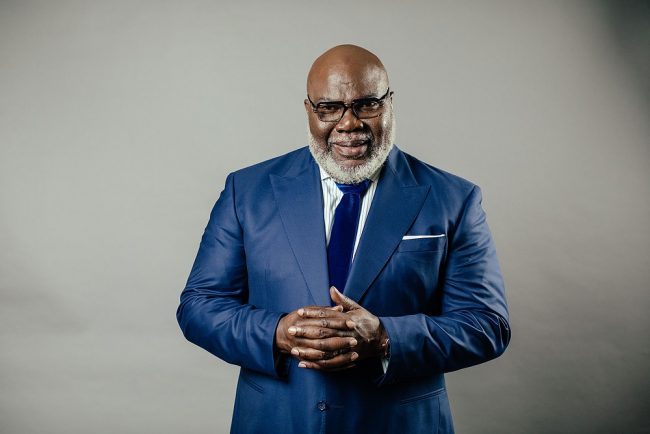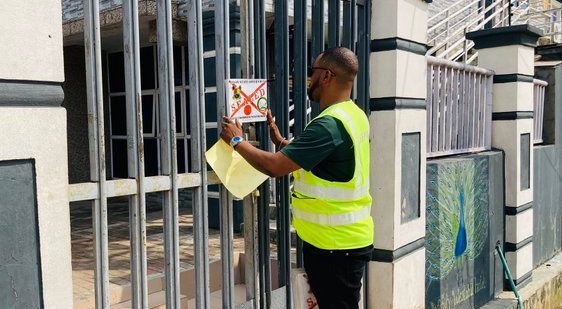We are, without any doubt or any form of pretence, far behind as a region. Let us step up to do something about it. I wish to charge socio-political and cultural organisations in the North to come together and convene a platform of like-minded Arewa persons to address this quagmire that has held the region down for far too long. The time is now to, step forward together and chart a new course for the Giant of Nigeria, sadly wobbling along presently with clay feet. History beckons, yan’uwa.
In the aftermath of the calamitous and disastrously mangled #endbadgovernance protests, which in early August had consumed some towns and cities in Northern Nigeria, I was exposed to discussions online about what may have led to these unfortunate events and the fate that has befallen the region as a consequence. One of them in particular (“Hunger Protest, Violence and the Russian Flag: Unfolding Events in Northern Nigeria”, issued by my brother and friend, Hussaini Abdu, PhD) was thought-provoking. He ably and cogently offered a distillation of some of the core drivers of this unfortunate turn of events in especially Northern Nigeria.
Now that the dust has settled, even if temporarily, I am inclined to hasten to restate the same points, albeit from another, more personal angle: Without minimising the plethora of factors offered to explain – and perhaps serve as a cure to aspects of – the drivers being highlighted, it is my contention that as political, economic and civil society elites of northern extraction, we (yes, many of us) have for too long pretended, ignored, overlooked or simply downplayed and/or failed to collaboratively confront and proactively stem in creative ways, the slowly germinating seeds of youth restlessness and their attendant restiveness, across huge swaths of the region. And this has been the story of the region, going back over four decades.
In the late 80s and into the 90s, I was privileged to have spent quite a lot of time in the company of the former (and late) military governor of Northern Nigeria, Ciroman Katsina, Major General Hassan Usman Katsina, of blessed memory. At just about every private and public function that he had opportunity to speak, he would openly and loudly lament the sorry, degenerating state of parental and community leadership, and the gradual failure and erosion of family and societal values in the North. Citizens everywhere would often praise and thank him for his (then rare, near-solitary public) forthrightness about the issues as it were. Thereafter, and again and again, we all returned to our businesses as usual.
The situation continued to be made worse within the North, by an insipid, vapid and outlandish culture of “maula”, gleefully and mindlessly practiced and encouraged by a thieving rentier class of dealers masquerading as leaders in the public, private and faith sectors of the socio-economy. Add to this as well, the inexplicable veneration and promotion by some, of a culture of begging involving hundreds of thousands of minors seen in just about every capital city and major town in Northern Nigeria, and indeed, in many, outside of it. These are children birthed by parents who, clear-eyed, have mindlessly abdicated their responsibility. It should be a badge of shame and dishonour that parents would instead wilfully opt to “export” innocent kids away from home with hardly a compass to sensibly navigate their way through a rough, brutish and harsh terrain, thereby rendering them as canon fodder for all manner of bad faith characters.
Agriculture in the north is and remains our “lowest hanging fruit”, yet we have outrageously failed to harness its full potential in tune with contemporary practices! Public, private and civil society actors must quickly work together to redirect and deploy the vibrant energy of our youth population to full, modernised and sustained participation in this sector. The sad reality to acknowledge is that, within a space of just eight years, a sitting president of Northern extraction wistfully (some would say, absent-mindedly) and inexplicably superintended over the unfortunate “democratisation” of insecurity all over the region.
In addition to these festering maladies within the culture is the general onset of apathy towards (and the deliberate, criminal divestments and wanton corruption which have weakened) state-driven skills, vocational and formal education. Amongst several other factors, these have combined to disadvantage the rapidly expanding youth population of this massive region of Nigeria. The general collapse of education opportunities and standards all over Nigeria, with the North bearing the brunt the most, became the bitter icing on the cake. And this was a region that had by all indicators of progression in modernity, was and is widely acknowledged to be lagging far behind its counterparts in Nigeria, long before independence in 1960.
Today, this generation of youth, born between 25 to 35 years ago, has all grown. It has matured in a North seemingly flailing without direction. The reality and experiences of these youths have been a witness to violent conflict and the rapacious pilfering by their so-called political, social and religious elites, of public resources. They have watched with envy – thanks to the ubiquity of social media – the abhorrent lifestyle of many of such office holders in the region and elsewhere, as exemplified by the opulent economic and social aggrandisement by political and faith leaders, serially on display in their villages, towns and cities. They have seen and felt the apparent incapacity fuelled by corruption, how a section of men and officers in state law enforcement and security have woefully come up short and/or have abused, misused and compromised their roles and gotten stupendously rich in the process. In stark and unmistakable terms, youths in the North of Nigeria are today living in the truest nightmare as direct witnesses and many of them are victims of a state apparatus manifestly unable to crucially combat and end banditry and curtail and punish kidnapping as a criminal enterprise. Our “matasa” have encountered first-hand, through nearly two-and-a-half decades now, a rampaging insurgency that has wrecked maximum havoc on the very foundations and socio-economic fabric of the North. Clearly then, we should be unsurprised that young people in Northern Nigeria seem unable to realistically visualise and locate for themselves a visible trajectory of a thriving future of socioeconomic opportunities. And the going off of the rails in this sense can be easily traced back from 1999 till date.
Nigerians need credible journalism. Help us report it.
Support journalism driven by facts, created by Nigerians for Nigerians. Our thorough, researched reporting relies on the support of readers like you.
Help us maintain free and accessible news for all with a small donation.
Every contribution guarantees that we can keep delivering important stories —no paywalls, just quality journalism.
But away from the lamentation. I make bold to say that some of the many answers and solutions to this dangerous state of affairs are right before us. I will mention a few:
Agriculture in the north is and remains our “lowest hanging fruit”, yet we have outrageously failed to harness its full potential in tune with contemporary practices! Public, private and civil society actors must quickly work together to redirect and deploy the vibrant energy of our youth population to full, modernised and sustained participation in this sector. The sad reality to acknowledge is that, within a space of just eight years, a sitting president of Northern extraction wistfully (some would say, absent-mindedly) and inexplicably superintended over the unfortunate “democratisation” of insecurity all over the region. Under his watch, rampaging insurgents and kidnapping gangs forced commercial and subsistence farming to the backstage, leading to acute food scarcity. Farms and farming communities had to contend with endless acts of daily, vicious terror, rendering thousands of arable farmlands to lay waste, year upon year. The options before us are as clear as day: We must quickly put heads together, figure a way out of these man-made challenges, sensitise and partner with state agencies, and commence the difficult but necessary act of mobilising our young population to return in their numbers, to our first love, which is agriculture.
…our northern governors must unashamedly and immediately ask to borrow, in part or wholesale, the youth developmental blueprint of Professor Babagana Umara Zulum, governor of Borno State. In a short four years of his first term in office, and building on the foundations of his predecessor, he instigated a huge experiment in skills and vocational training for thousands of youths annually. Majority of these youth had, on account of the Boko Haram insurgency, lost their chances of acquiring formal education.
Our villages, towns and cities are increasingly an environmental sanitation eyesore, with dirt and filth and unhygienic practices cohabiting with the populace, as if it is the normal way of life. The perennial outbreaks of diseases like cholera in many of our communities, of preventable and other serious diseases and ailments, reflect the abysmal living conditions of our compatriots in Arewa land. Our teeming youth population should be mobilised, trained and offered incentives in their various locations, to take up massive clean-ups of our neighbourhoods on a weekly basis. We must move to reimagine and put forth concrete and viable action steps in this regard, consciously engage with state, non-state and educational/research institutions, so as to design pathways that will ultimately convert the state of our despondent residential and commercial environments into the sustainable gold mine that they most certainly are. We have the demographic advantage over other parts of the country, that can be harnessed as the vanguard for this badly needed turnaround.
Finally (I have several other ideas but let me end it here for now with this point): our northern governors must unashamedly and immediately ask to borrow, in part or wholesale, the youth developmental blueprint of Professor Babagana Umara Zulum, governor of Borno State. In a short four years of his first term in office, and building on the foundations of his predecessor, he instigated a huge experiment in skills and vocational training for thousands of youths annually. Majority of these youth had, on account of the Boko Haram insurgency, lost their chances of acquiring formal education. But in another few years now, Borno youth will be blazing the trail in Northern Nigeria with their globally acclaimed entrepreneurial skills sets. I was part of a delegation visiting Maiduguri, Borno State for a couple of days in late 2022. Based on my first-hand encounters of these and other accomplishments by the Zulum administration in health, education, agriculture, trade and commerce, the time is now for every governor in the North to emulate this example and commit to provide skills for not less than 10,000 young people annually in various trades, crafts and entrepreneurship starter packs. The resources are there; it is doable.
We are, without any doubt or any form of pretence, far behind as a region. Let us step up to do something about it. I wish to charge socio-political and cultural organisations in the North to come together and convene a platform of like-minded Arewa persons to address this quagmire that has held the region down for far too long. The time is now to, step forward together and chart a new course for the Giant of Nigeria, sadly wobbling along presently with clay feet. History beckons, yan’uwa.
Haroun Harry Audu is a marketing communications consultant, public policy strategist, resource optimisation specialist and legal practitioner.
Support PREMIUM TIMES' journalism of integrity and credibility
At Premium Times, we firmly believe in the importance of high-quality journalism. Recognizing that not everyone can afford costly news subscriptions, we are dedicated to delivering meticulously researched, fact-checked news that remains freely accessible to all.
Whether you turn to Premium Times for daily updates, in-depth investigations into pressing national issues, or entertaining trending stories, we value your readership.
It’s essential to acknowledge that news production incurs expenses, and we take pride in never placing our stories behind a prohibitive paywall.
Would you consider supporting us with a modest contribution on a monthly basis to help maintain our commitment to free, accessible news?
TEXT AD: Call Willie - +2348098788999


















 English (US) ·
English (US) ·